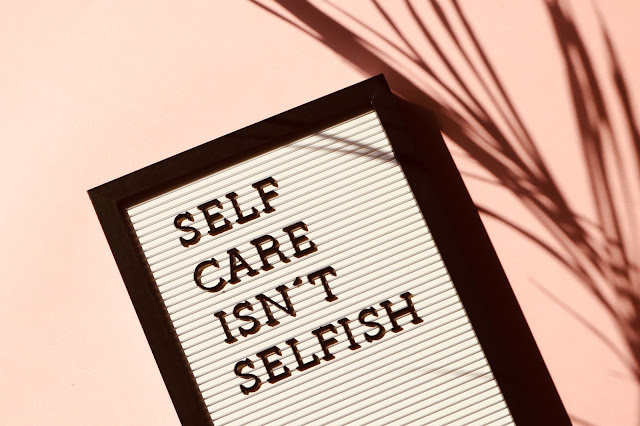Adopting a vegan lifestyle has gained significant popularity in recent years, with many individuals choosing to abstain from consuming animal products for ethical, environmental, and health reasons.
While the decision to go vegan is often driven by strong convictions, it is essential to acknowledge that this choice can present unique mental and emotional challenges.
Read also: 10 Sustainable Vegan Habits to Adopt from My Vegan Journey.
Mental and Emotional Challenges of Being Vegan With Practical Solutions.
1. Dealing with Social Isolation:
One of the most significant challenges faced by vegans is the sense of social isolation that may arise from being part of a minority group. Vegans often find themselves in situations where they must navigate social gatherings, restaurants, and family events that primarily revolve around non-vegan food. This can lead to feelings of exclusion, frustration, and even loneliness.
Practical Solution (Social Isolation):
- Join local vegan communities or attend vegan events: Connecting with like-minded individuals can provide a sense of belonging and support. Join The 30 Days Vegan Challenge to be a part of a thriving vegan community and meet like-minds.
- Engage in online vegan communities: Participating in online forums and social media groups allows for interaction with vegans from all over the world, expanding your support network.
- Host vegan-friendly gatherings: Organize potlucks or dinner parties where you can showcase delicious vegan dishes and introduce others to the benefits of a plant-based lifestyle.
2. Coping with Criticism and Misunderstanding:
Vegans frequently encounter criticism, skepticism, and misunderstanding from family, friends, and colleagues. This can be mentally and emotionally taxing, as it may feel like their values and choices are constantly being challenged.
Read also: Finding Harmony Between True Path Yoga and Veganism: A Holistic Approach to Mind, Body, and Diet.
Solution (Coping with Criticism and Misunderstanding):
- Educate yourself: Be well-informed about the reasons behind your vegan choices and gather scientific evidence supporting the benefits of a vegan lifestyle. This knowledge will help you respond to criticism confidently.
- Choose your battles: Not every conversation needs to turn into a debate. Pick your moments wisely and focus on constructive dialogue rather than trying to convince everyone at once.
- Lead by example: Show others the positive impacts of veganism through your actions. Prepare tasty vegan meals to share with family and friends, and let the deliciousness speak for itself.
3. Overcoming Emotional Attachments to Animal Products:
For many individuals, consuming animal products has been ingrained in their daily lives from childhood, often associated with pleasurable experiences and emotional connections. Making the shift to a vegan lifestyle can, therefore, be emotionally challenging, as it requires letting go of these long-held attachments.
Read also: Vegan Fast Food: A Guide to Delicious and Healthy Vegan Options at Your Favorite Fast Food Chains.
Solution (Overcoming Emotional Attachments to Animal Products):
- Discover new recipes and alternatives: Explore the wide variety of plant-based foods available and experiment with different recipes to find new favorites. This can help create positive associations with vegan alternatives and make the transition easier.
- Support vegan brands and businesses: Find vegan versions of your favorite products, such as plant-based milks, cheeses, and ice creams. Supporting companies that align with your values can reinforce the notion that you're not missing out on anything.
4. Managing Nutritional Concerns:
Nutritional adequacy is a common concern among vegans, as they need to ensure they meet their body's requirements for essential nutrients like protein, iron, calcium, and vitamin B12. The fear of nutrient deficiencies can lead to anxiety and stress.
Solution: (Managing Nutritional Concerns):
- Educate yourself about nutrition: Learn about the essential nutrients in a vegan diet and their plant-based sources. Familiarize yourself with vegan meal planning and ensure a balanced intake of protein, iron, calcium, and vitamin B12.
- Consult a registered dietitian: Seek professional guidance from a dietitian who specializes in vegan nutrition. They can help create a personalized meal plan and address any specific concerns you may have.
- Consider supplements when necessary: Some nutrients, such as vitamin B12, may require supplementation for vegans. Consult with a healthcare professional or dietitian to determine if supplements are needed based on your individual needs.
5. Cultivating Self-Care and Emotional Resilience:
Taking care of one's mental and emotional well-being is crucial for any individual, including vegans. Practicing self-care activities like meditation, mindfulness, journaling, and engaging in hobbies can provide a sense of grounding and emotional resilience. Connecting with nature, participating in animal advocacy efforts, and focusing on positive aspects of the vegan lifestyle can also help vegans maintain a sense of purpose and fulfillment.
Read also: How A 56-Year-Old Follows A Strict Vegan Diet, Exercises 4 Days A Week, And It Obviously Pays Off.
Solution: (Self-Care and Emotional Resilience):
- Practice mindfulness and meditation: Engaging in mindfulness exercises and meditation can help reduce stress and improve emotional well-being. Apps like Headspace and Calm offer guided meditations specifically designed for relaxation and stress relief.
- Engage in physical activity: Regular exercise releases endorphins, improving mood and reducing anxiety. Find activities you enjoy, such as yoga, jogging, or dancing, to incorporate into your routine.
- Connect with nature: Spending time in nature can have a calming effect on the mind and reduce feelings of stress and overwhelm. Go for walks in parks, hike, or engage in gardening to connect with the natural world.
- Seek support: Consider therapy or counseling if you're struggling with emotional challenges related to veganism. A mental health professional can help you navigate your feelings and provide tools to cope with difficulties.
Conclusion:
While adopting a vegan lifestyle can bring about numerous benefits, it is essential to acknowledge and address the mental and emotional challenges that come along with it.
By building a support network, improving communication skills, creating positive associations, ensuring proper nutrition, and prioritizing self-care, vegans can overcome these challenges and thrive in their ethical choices.
Remember, a compassionate world begins with nurturing our own mental and emotional well-being as vegans.
Useful Links:
- Plant-Based Recipe Cookbook for meal planning and nutritional needs.
Read also: Beef Is Overrated, Tofu Is Underrated. Why You Should Always Eat Tofu And Never Any Animal Meat.
Read also: 7 Useful Tips to Help You Stop Eating Meat And Start Embracing Veganism.




.png)











0 Comments